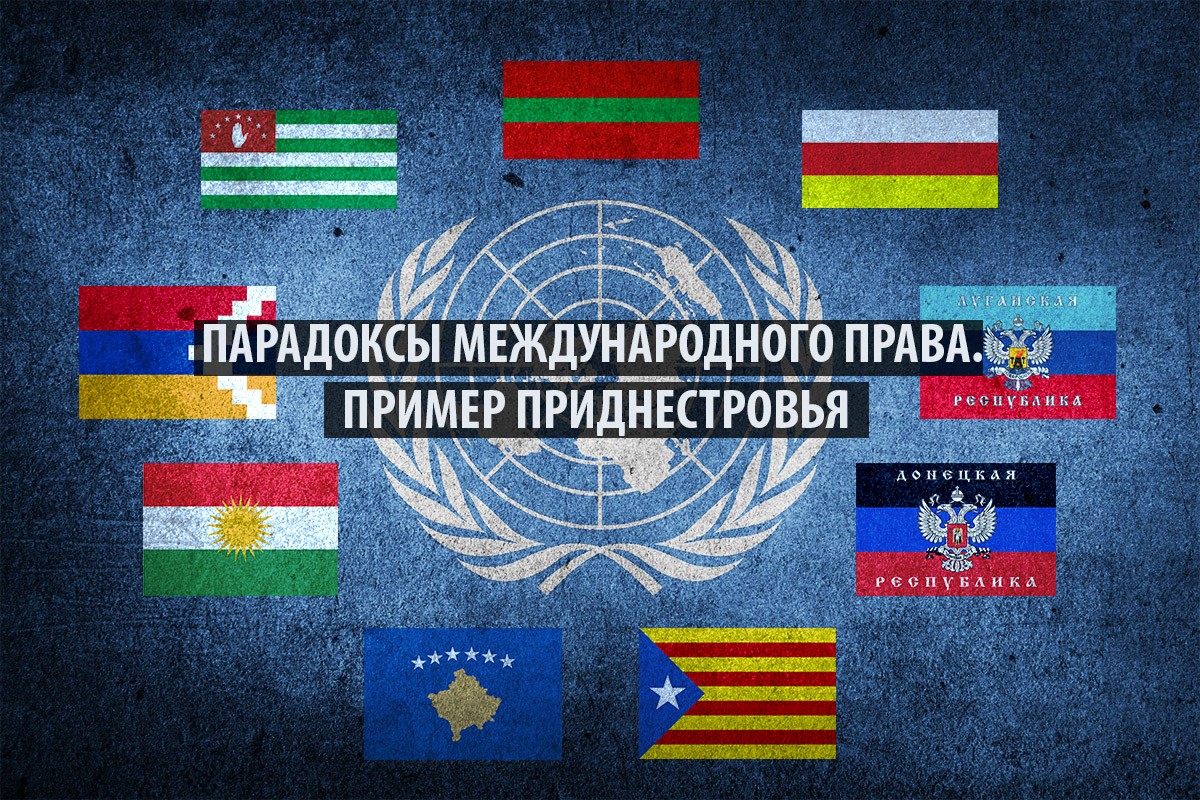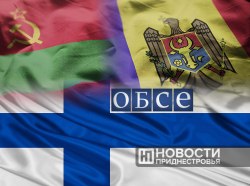Upward trend
The focus of international attention has been kept over recent months on the events in Spain and Iraq. Almost simultaneously two regional referendums were held in these countries in which the population of Catalonia and Iraqi Kurdistan decided the question on the prospects for remaining parts of their states.
Of course, both cases are unique both in their external environment and in a set of specific features. However, it is not difficult to draw obvious parallels: both votes took place amid the apparent disapproval or even resistance of the central authorities, and both ended in a landslide victory for the independence supporters.
It is noteworthy that the political leaders of these potential new states chose nearly identical patterns of behaviour after the referendums: having received formal carte blanche from their citizens to take further decisive steps, they nevertheless preferred to act extremely cautiously, even declaring the readiness to freeze temporarily the referendum results and engage in dialogue with the central authorities.
Judging from the development of the situation, they have not benefited from such "passive" steps. Moreover, the central authorities have got more time now and a window of opportunity for a number of vigorous and sensitive counter-measures, both political and military, which have made the prospects for the independence of Catalonia and Iraqi Kurdistan rather obscure at the current stage. On the other hand, the Kurds and Catalans can be understood — amid a sharp response from the central governments, they attempted to reduce the degree of tension, as well as to size up the international situation with a view to possible support for their future sovereignty, which as a result they have failed to obtain.
In the meantime, the club of these de facto independent countries seeking diplomatic recognition is pretty large. And in recent weeks, when the probability that more countries would join its ranks has become very high, the international community has once again intensified debate on a number of pressing issues, such as: in which cases does a nation have the right to self-determination and when should a country remain "united and indivisible"? How should relations be regulated between a newly formed state and its former "mother country" when there is traditionally a high risk of conflict?
These and other issues have not lost their relevance for decades, but there is no clear answer. Nor is a working mechanism, agreed by the parties, which would ensure the smooth and peaceful resolution of situations involving the practical implementation of the right of nations to self-determination.
In the meantime, such cases are solved individually, often in accordance with momentary geopolitical interests and ambitions of some of the global actors involved. Otherwise, they are not solved at all.
Nevertheless, year after year this upward trend in international relations has become increasingly difficult to ignore. There is a growing need to understand it and seek solutions to related crisis phenomena. It is important to draw attention not even to ongoing processes but rather to the newest states that have sought recognition for many years.
In this context, one of the most peculiar and characteristic examples is Pridnestrovie, or the Pridnestrovian Moldavian Republic.
A path to statehood
In formal terms, Pridnestrovie is part of the Republic of Moldova, but, in fact, the PMR has existed as a full-fledged independent state for over 27 years.
The reasons for the emergence and development of the Pridnestrovian statehood are directly related to a number of specific historical preconditions. First of all. it should be noted that the Moldovan state in all its forms had never comprised the Dniester's left bank, and even within the Russian Empire modern Pridnestrovie and Moldova were parts of different administrative units.
After the October Revolution of 1917, Pridnestrovie first became part of the newly established Ukrainian SSR and then the basis for the formation of the so-called Moldavian Autonomous Soviet Socialist Republic (MASSR). The headstrong decision of the Soviet leadership to form the MASSR was not caused by the situation in the region but by an intention to use this territory as a bridgehead for returning Bessarabia — today's Moldova — occupied by Romania. This plan was implemented in 1940 following the conclusion of the notorious Molotov-Ribbentrop Pact, demarcating the spheres of influence of Germany and the Soviet Union. Bessarabia joined the USSR and through its accession rather than vice versa the Moldavian SSR was established.
In fact, Moldova's modern claims to the Pridnestrovian territory appeal to this relatively short period of coexistence within the MSSR from 1940 to 1990. At the very least, however, the legal basis for such claims appears to be highly contentious.
In the late 1980s and early 1990s the MSSR, as well as many other Soviet republics, was swept by the wave of nationalism and separatism. Taking advantage of the weakness of the Soviet centre and the support of domestic radicals, the authorities of the MSSR accelerated exit from the Soviet Union. As part of this process, the Supreme Council of the MSSR adopted two fateful decrees that would influence further relations with Pridnestrovie — a sovreignty decalaration and a decree the Molotov Rebbentrop Pact as void. These decisions, approved on the same day, actually recognised illegal the establishment of the MSSR and de jure brought the situation back to 1940, this excluding Pridnestrovie from the country.
The Pridnestrovian population, however, sought to remain in the USSR, as is amply demonstrated by the results of a referendum in the future PMR.
In order to get protected against the unprecendented resurgence of nationalism in Moldova, with the total persecution of the Russian-speaking population looming, the Pridnestrovians proclaimed its own state by implementing their legitimate right to self-determination.
As we can see, Pridnestrovie had legitimate legal grounds to assert its sovreignty. The past 27 years do not give rise to any particular reason to doubt the validity of this country as an independent state.
To date, Pridnestrovie has established all the necessary social, economic and civil institutions. The structure of public authorities functions well, exerting efficient control over the country's territory. There is a continuity of democratic procedures and processes, including electoral ones. Besides, Pridnestrovie has a long history of interaction with foreign countries and international organisations and participate as an equal party in the international negotiation process on the Moldo-Pridnestrovian settlement.
For a long time, the country had shown good progress in the economy, quickly attaining self-efficiency, but strict blockade measures imposed by the neighbours have severly undermined its economic potential.
The above facts lead to the obvious conclusion: Pridnestrovie has succeeded in fulfilling its potential as a state, and there is no objective reason to deny its independence. The international community, however, continues to persist in ignoring the existence of the Pridnestrovian statehood, reiterating as a mantra the argument of "the need to respect the territorial integrity of the Republic of Moldova."
The system of international relations needs reforming
This argument sounds less and less convincing and rational with every passing day, but it is clear that other formulas, as well as the political will to develop and implement them, are not available today. The international community adheres to the status quo, hoping that the situation will enetually resolve itself.
Such tactics is unlikely to solve the problems. It is also unlikely that Pridnestrovie is going to refuse its sovereignty in the foreseeable future, especially when an overwhelming number of citizens advocate its preservation. Rather, on the contrary: Tiraspol will continue to insist even more persistently on the international recognition of its independence. This is indicated, in particular, by the recent appeal of the country's authorities to the UN for observer status with the organisation.
This decision of the Pridnestrovian government is very logical, especially in the face of such examples as Southern Sudan, which very soon became a UN member following the independence referendum of 2011, or the Republic of Kosovo, which has already been recognised by over 100 countries.
Ultimately, there is still no clear answer as to why that's what happened in the above-mentioned countries is the "self-determination of nations", and that's what took place in the PMR isn't.
If in the case of Southern Sudan, it is possible to refer to the formal consent of the central authorities for a referendum and subsequent withdrawal, which by the way is not required under international law, Kosovo's case, which western diplomats hastened to call sui generis, i.e. a case not setting a precedent, raises many awkward questions. If only because Kosovo's "unique" situation, as is seen in the west, including the collapse of Yugoslavia and crimes against the civilian population, can be equally transposed to Pridnestrovie, which was also formed as the result of the USSR's collapse and Moldova's aggression against its own people.
The example of Pridnestrovie in this regard is far from being isolated. In the post-Soviet territory alone, there are partially recognised states Abkhazia and South Ossetia, as well as Nagorny Karabakh, the Lugansk and Donetsk republics. And there are many other countries in the world that are not UN members. It is possible that other countries will join this club soon. Thus, an increasing number of territories on the planet find themselves outside the official system of international relations, which is neither optimal nor fair.
The system has long needed reforming, and a reasonable solution to the existing problems through, for example, recognising the self-proclaimed states, such as Pridnestrovie, that have already proved its solvency, could be one of the first steps in that direction.
Filipp Burunov








